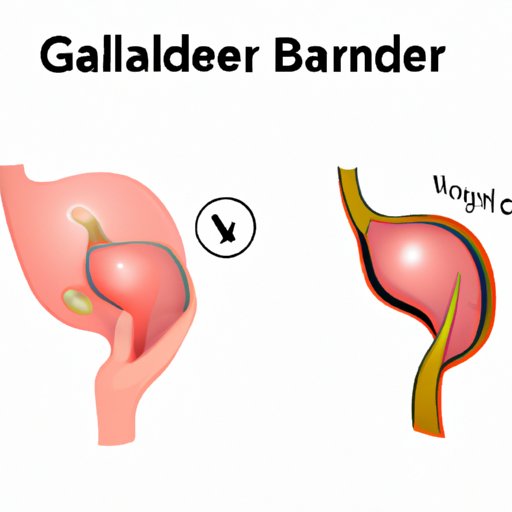
How Do You Know if Your Gallbladder is Bad
The gallbladder is a small organ located in the right upper quadrant of the abdomen, just below the liver. Its main function is to store and release bile to help with digestion of fats. While many people may not even think about their gallbladder, it can cause significant problems when it’s not functioning properly. In this article, we’ll explore the symptoms of a bad gallbladder, the causes and risk factors for gallbladder disease, treatment options, prevention tips, and when to seek medical attention.
Symptoms of a Bad Gallbladder
One of the most common symptoms of a bad gallbladder is abdominal pain, typically in the right upper quadrant or epigastric region. The pain may be mild, moderate, or severe and can sometimes radiate to the back or shoulder. Another common symptom is nausea and vomiting, which may occur after eating high-fat or greasy foods or during an attack of gallstone pain.
Jaundice, or yellowing of the skin and eyes, is also a possible symptom of a bad gallbladder. This occurs when the bile ducts become blocked by a gallstone or other obstruction, causing a buildup of bilirubin in the bloodstream. Other symptoms may include bloating, gas, diarrhea, constipation, fever, and chills, especially if an infection is present.
Causes of Gallbladder Problems
The gallbladder works by storing and releasing bile, which helps to digest fats. When something goes wrong with this process, gallbladder problems can occur. There are several potential causes, including diet, genetics, medical conditions, and age and gender.
A high-fat, high-cholesterol, low-fiber diet is a common cause of gallbladder problems, as it can lead to the formation of gallstones. Family history and inherited conditions like sickle cell anemia and porcelain gallbladder can also increase the risk. Medical conditions like diabetes, liver disease, and infections can cause gallbladder problems as well, as can hormonal changes during pregnancy. Women over 40 are at higher risk for gallbladder disease than men or younger women.
Risk Factors for Gallbladder Disease
A risk factor is anything that increases your chance of developing a particular health condition. There are several risk factors for gallbladder disease, including those related to lifestyle, health conditions, and medications.
Being overweight or obese is a significant risk factor for gallbladder disease, as it can lead to the formation of gallstones. A sedentary lifestyle and pregnancy are also risk factors. Rapid weight loss or yo-yo dieting can increase the risk of gallstones, as can certain medications and supplements, including estrogen therapy and cholesterol-lowering drugs.
Treatment Options for Gallbladder Issues
The treatment options for gallbladder problems depend on the severity and cause of the condition. In some cases, medications like pain relief, bile acid supplements, and antibiotics can help. In other cases, dietary changes, such as reducing portion sizes and limiting high-fat, low-fiber foods, can be effective. Some people may find relief from natural remedies such as herbs, supplements, or alternative treatments.
In more severe cases, surgery may be necessary to remove the gallbladder entirely. Cholecystectomy is the most common surgical procedure for gallbladder disease and can be done laparoscopically or with an open incision.
Prevention Tips for Maintaining a Healthy Gallbladder
Prevention is always better than treatment, and there are several things you can do to lower your risk of developing gallbladder problems. Eating a balanced diet that is high in fiber, low in fat, and moderate in protein is a great place to start. Staying physically active through regular exercise, movement breaks, and stretching can also help.
Managing your weight and body mass index (BMI) through healthy weight loss and weight maintenance is crucial, as is avoiding smoking and excessive alcohol consumption. Taking care of your mental health and managing stress is just as important, as stress can contribute to a range of health problems, including gallbladder disease.
When to Seek Medical Attention for Gallbladder Issues
If you suspect that you have a problem with your gallbladder, it’s essential to seek medical attention promptly. Persistent or severe symptoms, complications like pancreatitis or gallstones, recurrent episodes or flare-ups, and worsening symptoms despite treatment are all reasons to see a doctor or specialist.
Conclusion
Knowing how to recognize the signs and symptoms of a bad gallbladder and understanding the causes, risk factors, treatment options, and prevention tips can help you take care of your digestive health and overall well-being. If you suspect that you have a problem with your gallbladder, don’t hesitate to seek medical attention. With proper treatment and care, you can get back to feeling your best.





